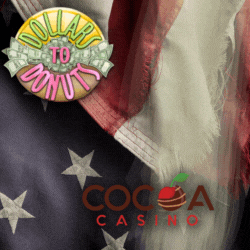West Virginia Announces Sports Betting Revenue of $13.8m, Figures Gradually Grow
January 9, 2020 Aleksandra Zolotic

West Virginia’s sports betting revenue amounted to $13.8m in the first six months of the state’s fiscal year. Consumers spent a total of $144.5m and scored $128.7m during the period encomed in the report, which included the six days to the start of the fiscal year on July 1, through to December 28, 2019.
As for the period from September 1, 2018, through to December 29, 2018, overall sports betting revenue stood at $6.5m. This indicates that the revenue was up 112.3% on a year-on-year basis. Retail revenue, as the primary source of income for licensed operators, climbed by 139.5% from $3.8m. Mobile wagering, having begun in late December 2018, acquired $25,630 in revenue in its only active week in the period.
Retail Leads the Way, Mobile Still Slightly Dormant
The hugest share in the revenue for overall sports wagering revenue during the period came from retail. The overall amount sum totaled at $9.1m, with players spending $87.8m and winning $76.8m.
The mobile market remained idle…
… as a result of the dispute between Delaware North and Miomni Gaming. Delaware North’s BetLucky app, powered by Miomni, went offline less than two months after launching in December 2018. It returned to West Virginia in August 2019, when FanDuel introduced a new app in collaboration with The Greenbrier, closely followed by DraftKings.
Nevertheless, despite this five-month gap, players still wagered $56.7m via mobile and won a collective $51.9m in 2019. Comparable figures with the previous year are not completely possible as the Mountain state did not roll out its legal sports betting market until September 2018.
Charles Town Races’ Hollywood Casino as Best Contributor
The leading supplier in the state was Penn National Gaming’s Hollywood Casino in Charles Town Races. The venue posted $9.3m in revenue for the first half of the fiscal year and processing $96.8m in bets.
Hollywood Casino, which operates its sportsbook via a partnership with DraftKings…
…saw retail revenue amount to $6.3m, while mobile revenue came in at $3.0m for the said time frame. The Greenbrier private resort took second place, with revenue of $2.2m for the six months, processing $28.8m in wagers. Its main source of income was mobile revenue, with a total of $1.7m, whereas retail revenue hit $583,299.
The William Hill Sports Book at Mountaineer Casino was slightly behind, with an overall revenue of $2.18m, with players spending $18.8m. Revenue was collected entirely from retail, as the parlor does not yet offer mobile wagering.
On the other hand, Delaware North’s Mardi Gras and Wheeling establishments have been inactive since March due to the dispute with Miomni Gaming. Wheeling paid out $5,531 in winning bets placed before the dispute, while Mardi Gras settled wagers worth $9,538.
Source:
“WV sports betting revenue reaches $13.8m in first half”, igbnorthamerica.com, January 8, 2020.
















Why, on Earth, going offline just two months after launch?! I don’t get it! I mean, mobile betting is the future, and operators should be putting efforts to be available on the go, not the opposite.